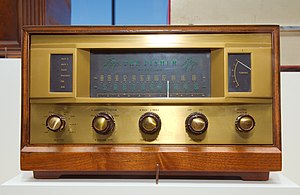“I recently took a social psychology course as an elective toward an undergraduate degree in sociology. Our assigned textbook was Social Psychology by David G. Myers (ninth edition, McGraw-Hill, New York, 2008). Myers is a prolific author of college textbooks, and I’d read another of his books for an introductory psychology class. As I read more of Social Psychology, I began to notice that Myers seems to have a negative opinion of single people.
“Throughout the book Myers correlates being married with higher levels of health, happiness, success, and social status than for single people. But rather than offer readers a range of views about marital status that supports critical thinking, Myers promotes one viewpoint and seems to denigrate single people.
“In the first chapter, Myers describes a correlation between obesity in young women and discrimination, and states that obese women’s unmarried status at the conclusion of the study – at age 31 – suggests that the women were discriminated against. But does being unmarried at age 31 – or age 41 or 51 – necessarily indicate discrimination? Is being single a negative indicator?
“There are volumes of scholarly research on happiness, life satisfaction, and loneliness in married, single, divorced, and widowed people, from many points of view. But throughout the textbook, Myers only mentions research that supports his beliefs about marriage, and seems to find opposing views trivial. Myers writes “the myth that single women are happier than married women can be laid to rest” without citing proof. At times he sounds contemptuous, referring to unmarried people as “pleasure-seeking” and assuming that single people view marriage as being in “bondage,” “chains,” or a “yoke.”
“Myers also states that married people are more complex than single people, explaining that if a married person has a bad day at work, he needn’t fall apart, because his work self is only a small part of his identity. According to Myers, “when our personal identity stands on several legs, it, too, holds up under the loss of any one.” He concludes that a married person’s identity “stands on several legs” but that a single person’s identity stands only on one leg – his work life. It is as if Myers assumes that single people have no other pursuits outside of work – nothing but four walls and the pursuit of mindless pleasure!
“Ironically, a chapter in which Myers disparages single people features a photo of the Delaney sisters, a pair of sisters who never married, and who each lived beyond the age of 100. The text offers, “The Delaney sisters, both over 100, attributed their longevity to a positive outlook on life.”
“A social psychology textbook should encourage critical thinking about cultural beliefs, not reinforce stereotypes and suppress dissenting views. College professors who assign this textbook should be aware of Myers’ biases and also assign texts that offer a range of representations of the lives of single people.
“In class we discussed the widely held belief that married people were better off in terms of happiness, health, and life satisfaction. One student mentioned Jennifer Senior’s article about urban loneliness in New York Magazine. I read the article and that led me to discover the Singles Studies web site at Berkeley, which led me to books that challenge anti-singles bias in academic research and popular culture. Through further reading, I learned that certain studies that support Myers’ negative view of single people are flawed in terms of data, design, or interpretation, and that some of our culture’s assumptions about single people are based on flawed research.
Myers, David G. 2008. Social Psychology (9th edition) http://highered.mcgraw-hill.com/sites/0073531898/information_center_view0
David G. Myers’ web site http://www.davidmyers.org
Alone Together, by Jennifer Senior http://nymag.com/news/features/52450
What a shame the textbook author has such a limited view of singles–I bet he doesn’t know any single women who are SWWANs! Like Jeanine’s writing? Follow her on Twitter






 Discovered a cool Twitterer the other day, Jeanine, who writes about SinglePhobia. Having become a college student later in life—going for a second degree—she was surprised to find how negatively single people were presented in her university textbook. Happily, she agreed to contribute to our SWWAN blog…
Discovered a cool Twitterer the other day, Jeanine, who writes about SinglePhobia. Having become a college student later in life—going for a second degree—she was surprised to find how negatively single people were presented in her university textbook. Happily, she agreed to contribute to our SWWAN blog…![Reblog this post [with Zemanta]](http://img.zemanta.com/reblog_e.png?x-id=a9747d4c-ddb2-47ce-97f9-c792f316afee)